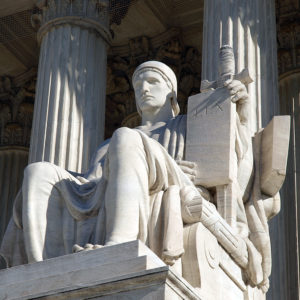Three state workers in the Department of Human Services have filed suit in federal court against Service Employees International Union Local 668, alleging the union continued to withhold dues from their paychecks even after they withdrew their membership.
Brad Barlow, Fran Biddiscombe, and Melanie Rorabaugh claim they resigned from the union in 2020. Then, even after a short waiting period expired, the deductions continued.
All three are represented by the Fairness Center, a nonprofit that specializes in representing individuals against unions.
“Although Local 668 officials acknowledged our clients’ resignations, the union and Commonwealth continue to seize union dues from our clients’ paychecks,” said Fairness Center President Nathan McGrath. “Our clients believe it’s unconstitutional for the Commonwealth and union to compel them to financially support Local 668 after they’ve resigned, and they’ve put the union and Commonwealth on notice that they no longer want to pay union dues.”
A representative for the union said their organization had only begun to review the lawsuits and would not be commenting.
The Fairness Center says the dues that members are trying to claw back are usually minor amounts, and so the plaintiffs are often fighting out of a sense of principle.
Attorney Danielle Susanj with the Fairness Center says all three clients jumped through numerous hoops over months to try and extricate themselves.
“Ms. Rorabaugh, for instance, sent her first resignation letter in January 2020, but the union didn’t respond to her,” Susanj told Delaware Valley Journal. “She then sent her letter again in June 2020, but union officials told her she was too late. They said because she did not request to end dues payments during a 20-day window in May 2020, she could not stop paying dues until May 2021. That means the Commonwealth will keep taking nonmember union dues out of her paycheck for almost a year and a half after Ms. Rorabaugh decided to leave.”
Last year, the Fairness Center won a settlement for a woman who worked at a state hospital in Montgomery County. She had sued AFSCME under similar circumstances.
These legal actions were all but impossible until the landmark U.S. Supreme Court case Janus vs. AFSCME, Council 31, which ruled that public employees who are not a member of the union cannot be forced to pay dues as a condition of their employment.
The ruling applies only to government employees and their unions, and does not apply to companies in the private sector.
Since the 2018 Janus ruling, union foes and advocates alike have been trying to assess how impactful the ruling would become.
Just after Janus, The Atlantic spoke with a university professor of labor who “found that a decision in favor of Janus could reduce the union membership of state and local government employees by 8.2 percentage points, or 726,000 union members. This will lead to a loss of revenues for the unions, and with less money, unions will hire fewer representatives, take fewer cases to arbitration, and organize fewer members than they once did,” the magazine noted.
A report from the right-of-center Manhattan Institute noted that the ruling would impact revenues overall but noted that “membership in public unions has not declined dramatically, and some unions have even increased their membership,” since Janus.
AFSCME boasted as much in 2019.
“In our first filing with the Department of Labor since the Janus case, we reported a gain of 27,735 dues-paying members and retirees,” the union tweeted in the spring of that year.
Since then, membership losses for unions have resumed, but at a gentler pace.
Nationally, the loss has been less steep but steadier,” a recent report from the Chicago Sun Times said. “Unions now have 14.6 million members in the U.S., or 10.3% of all workers. That compares with 14.8 million and 10.7% in 2017.”

